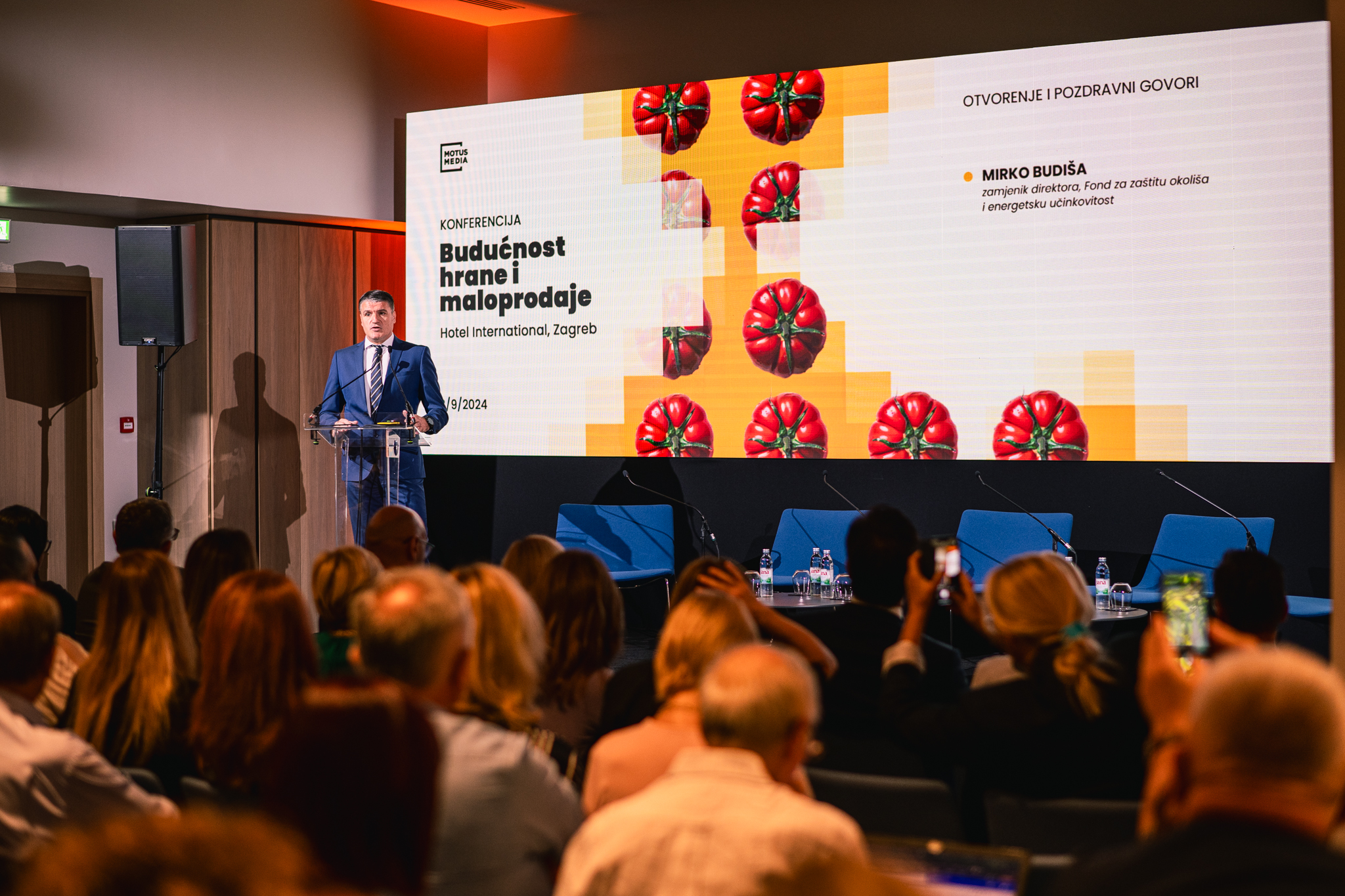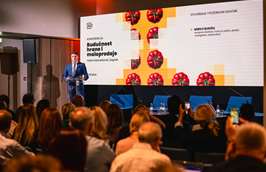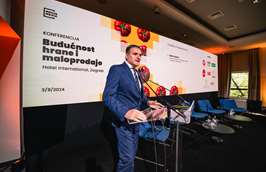03.09.2024.
Today’s conference titled the “The Future of Food and Retail” was attended by deputy director of the Fund Mirko Budiša, and department head at the Sector for EU Fund Vesna Cetin Krnjević, who gave a lecture on the methods for reducing food waste.A conference on the future of food was held at the International Hotel in Zagreb, where numerous experts and participants in the process of food production and distribution in Croatia spoke about the challenges and problems they are facing, as well as about solutions.
In his introductory address, deputy director Mirko Budiša noted that we should start from our mindset regarding food, and what and how much we buy to be sustainable. He pointed out that food production in all its segments affects our environment, from protective equipment and irrigation to the fact that part of produced food becomes waste. He also referred to the Fund's pilot project "Reduce Food Waste, Cook for Your Guests", which was aimed at reducing food waste in hotels.
"The Fund has recognised the problem of food waste and, with the aim of reducing this type of waste, we have implemented a pilot project in two hotels in Pula and Osijek. The categories of food that are discarded the most have been identified and measures have been implemented to reduce them. Education of staff was also carried out and guests were encouraged to take on plate up only as much food as they would eat. In addition, guidelines were developed as a valuable tool for reducing food waste. Based on all the results collected, since 2022 the Fund has been implementing public calls for co-financing the purchase of devices for the prevention of biowaste (food waste), to which different institutions applied such as hospitals, student centres, children's homes, student dormitories, kindergartens, homes for the elderly and correctional facilities,” said Budiša.
The head of a department at the Sector for EU Funds, Vesna Cetin Krnjević, held a lecture on reducing the amount of food waste. "The Fund has been dealing with waste management for years. In our households, we waste 54 kilograms per capita, meaning we are slightly below the European average. The equivalent of the annual amount of food waste is 12,000 trailer trucks, given a trailer truck has 24 tons. The edible part, which we throw away unnecessarily, equals 4.400 trailer trucks in the length of 70 kilometres. What we are trying to do is reduce food waste that ends up in landfills in large quantities, which is crucial for us," explained Cetin Krnjević.
The problem of food loss and waste includes both developed and underdeveloped countries. Food loss has a significant impact on the economy, society, and the environment. Almost 59 million tonnes of food waste (131 kg per capita) are generated in the European Union every year. It is estimated that in this way about 132 billion euros are lost. The European Union states that per capita food waste should be reduced by 30 percent by 2030. Food waste is the source of 252 million tonnes of CO2 equivalent, or about 16% of total GHG emissions from the EU food system. Food loss also places an unnecessary burden on limited natural resources such as land and water.
In 2021, the Ministry of Environmental Protection and Green Transition conducted a statistical survey on food waste in the Republic of Croatia.
Annually, more than 286,000 tonnes of food is discarded, of which 216,000 tonnes are from households.
At the conference, Member of Parliament and Chair of the Committee on Agriculture of the Croatian Parliament Marijana Petir, said that Croatia had all the resources for food production. "The real question is whether we want to base our economy on tourism, or whether we will reorient ourselves to production, especially of food, without which there is no life. It is necessary to transform this sector and move it away from producing raw materials for export, and repurpose it for the production of fresh and serviceable products, as well as products adapted to the market, which is consistent with the circular economy", said Petir and continued: "That’s why we need to strengthen production and processing capacity, and storage of products, and intensify education, which is something being worked on, and we must recognise examples of ways to strengthen this sector. Croatia has received 5 billion euros through the Common European Agricultural Policy, but many agree that money alone is not enough to solve all the problems in our agriculture."
With rapid technological innovation, changes in consumer habits and a growing focus on sustainability, the food and retail sectors face challenges and opportunities that shape the future of our global food infrastructure.
The most important thing for consumers is not only the price, but also the quality and safety of the products they buy and end up eating. However, it is necessary to manage food more sustainably, not only in economic, but also in ecological terms.

Marko Lopac / Motus Media









